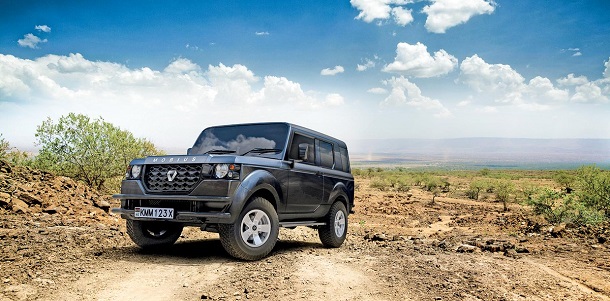By George Aine
Most Africans crave four-wheel drive vehicles that will suit the pot-holed roads in most parts of the continent.
However, importing such vehicles such as Jeeps, Lexus, and Mercedez Benz into the country is an expensive venture.
With the high import tax, it becomes really expensive for one to import such a vehicle into Uganda.
It’s this challenge that prompted British entrepreneur Joel Jackson to introduce an affordable but classy SUV for the African market.
Jackson, having visited rural Kenya, faced significant challenges with the bumpy roads there.
He also realized that many Kenyans, just like other Africans, preferred the classy vehicles but could not afford them.
He then founded Mobius Motors in 2009 in Kenya that is manufacturing Mobius II, a sleek SUV with rugged suspension for tough terrain, a ladder chassis to carry heavy loads.
Features of Mobius II
The Mobius II is a 4×4 that builds on the Jeeps, Land Rovers, and Land Cruisers, with an emphasis on simplicity and proven rugged reliability.
A space frame chassis rides on front A-arms and a rear live axle, powered by a 1.8-liter four-cylinder motor.
The Mobius II’s compact dimensions and generous ride height are perfect for what you’ll find in Kenya, and the styling gives a nod to its trailblazing ancestors.
Mobius is taking preorders now, with plans to sell in the UK and US.
Must read: Uganda’s Doreen Biira named among 250 most influential biz journalists in the world
It also costs about $13,000, which is affordable compared to the other imports.
“Millions of people are having their productivity undermined because of the time it takes to move around and get from place to place, and that problem could be solved with a better type of product,” Jackson said in an interview with CNN in February this year.
He also reveals of the humble beginnings and the eventual investment that has since turned around business fortunes at the company.
“We started with a very humble shed in Kilifi, a fishing town on the coast of Kenya, and then we moved to Mombasa, and eventually we set up in Nairobi where we have research and development and production facilities,” Jackson says.
Yong, a former student of Harvard Business School who joined the automaker in 2016, says the company has since remodeled the technical design, supply chain, and the design of the production facility to allow for an efficient production process at low volumes and with manual labor.
Mobius Motors ambitious growth plan
Yong said Mobius will soon embark on an ambitious growth plan by opening a new factory.
With $20 million in investments and loans to date, the company designed, built, and sold their proof of concept, then developed the Mobius II and commissioned a factory to produce it.
In addition to its 50 full-time employees, the new factory will add another 50 people per shift, doing everything from laser-cutting steel frames to inspection, painting, general assembly, and quality testing.
The company worked with contract assembly to build its first 50 vehicles, so the factory will allow Mobius to control the production process and lower costs.
Only 9 percent of the world’s vehicles are produced on the continent—mostly in South Africa or North Africa — and Jackson says the lack of manufacturing deprives the region of an important source of jobs and economic growth.
“Car companies are still focused on the BRIC (Brazil, Russia, India and China) economies. Africa is an overlooked market in general, and there is an opportunity to do something different,” he explains.
“There is a supply demand-disconnect, with the vast majority of automotive spending on the continent today essentially funding an international network of car exporters, instead of fueling the growth of local industry,” he adds.
Related:
How a startup plans to electrify Africa with cheap batteries
Africa’s first women-only ride-hailing service launched

